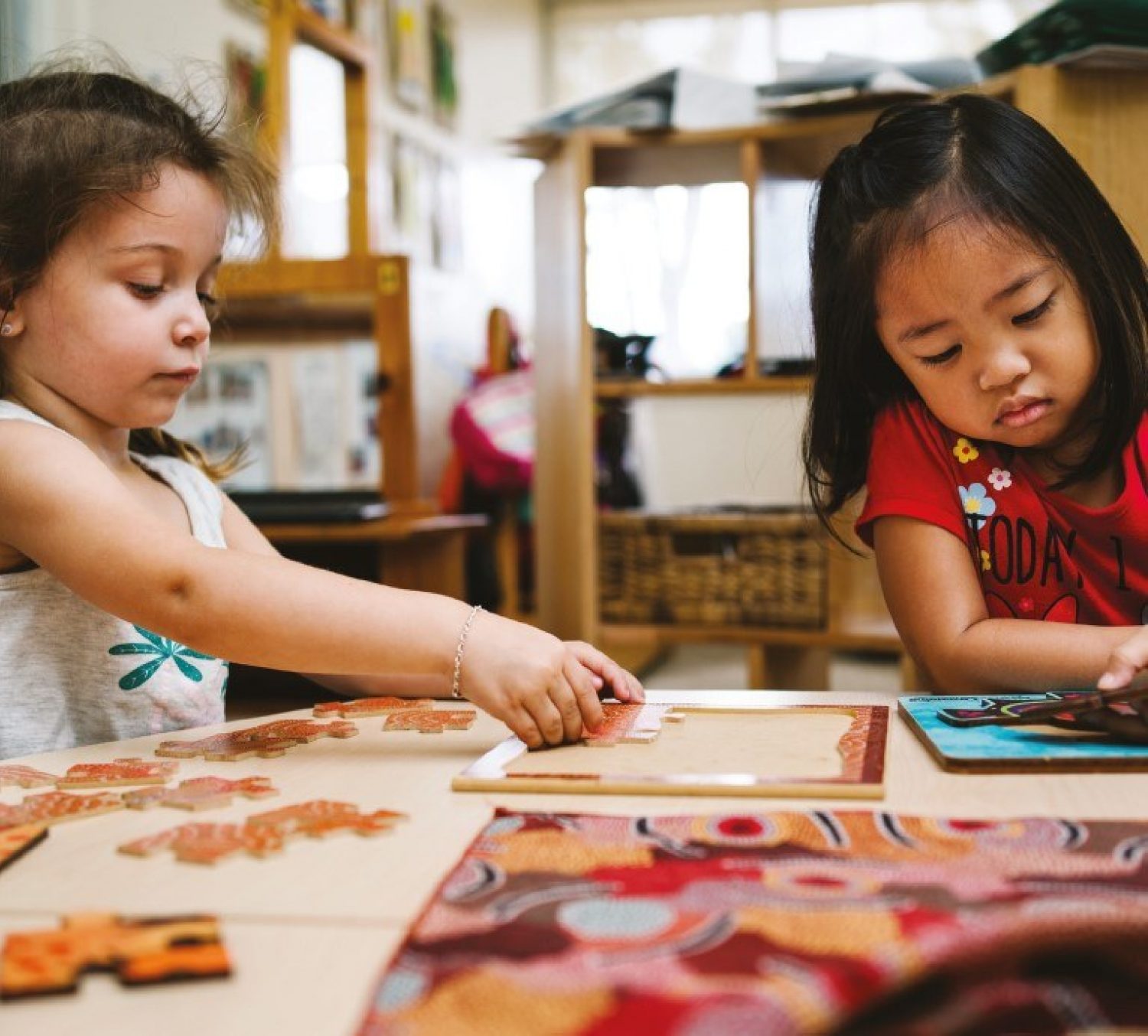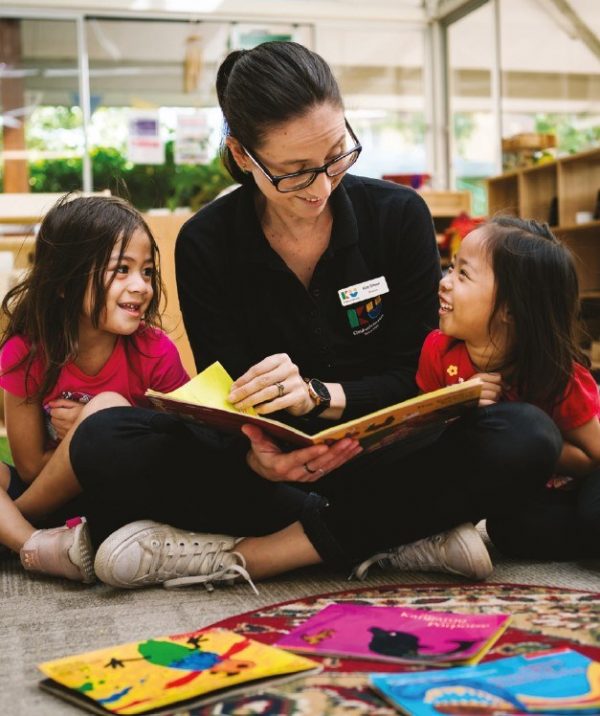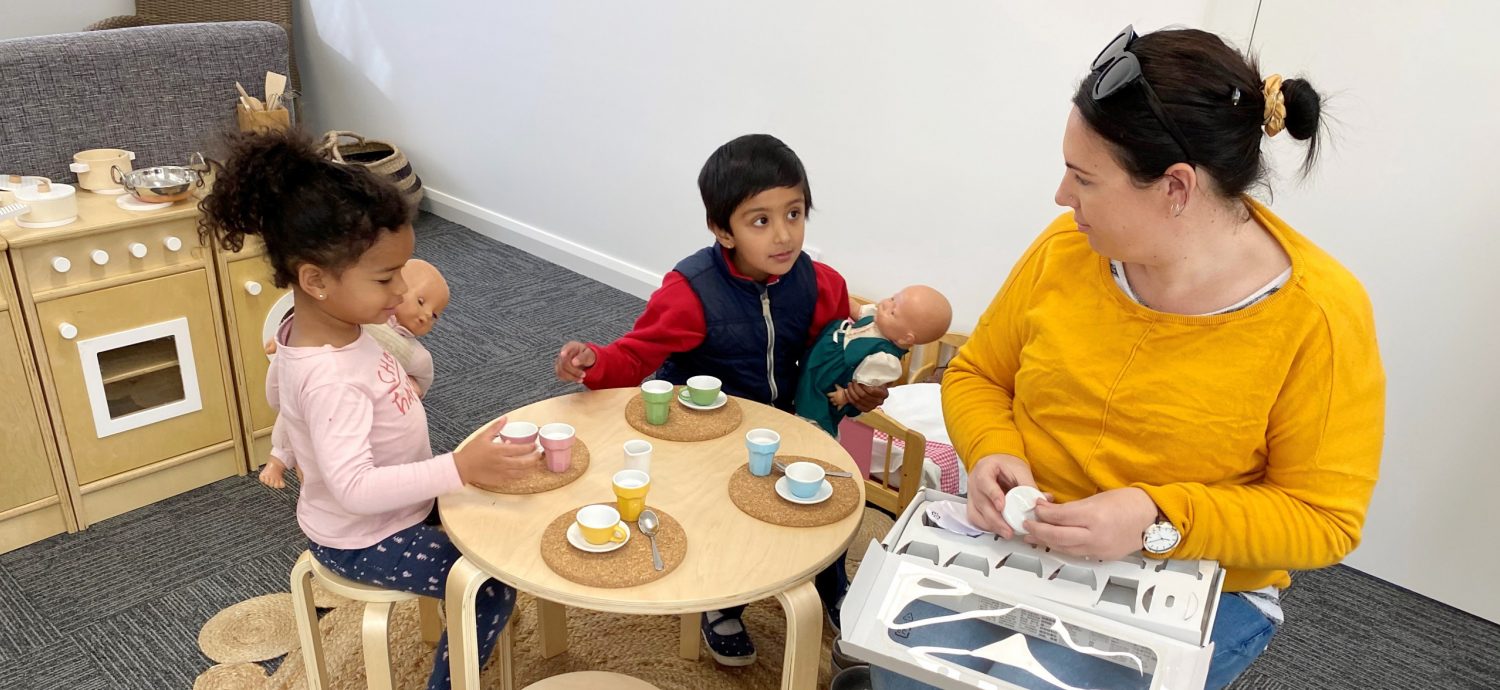KU has a long and proud history of making a positive social impact and in 2020 we continued to make the KU Difference, with a particular focus on Aboriginal and Torres Strait Islander Programs.
With the development and implementation of KU’s Innovate Reconciliation Action Plan (RAP) in 2016, KU embarked on a journey of exploring practical responses and actions of reconciliation. At the end of the RAP’s two-year lifespan, KU was proud to have achieved 80 of the RAP’s 82 deliverables.
After submitting a final report about our Innovate RAP in 2019, Reconciliation Australia recommended for KU to focus on the development and implementation of an Aboriginal and Torres Strait Islander workforce strategy, set up an Aboriginal and Torres Strait Islander Advisory Group, continue making connections with Aboriginal and Torres Strait Islander peoples and communities, and continue to establish and strengthen partnerships with key stakeholders within services, KU Central Office and the Board. These all became key areas for KU to focus on as part of our reconciliation journey in 2020.
KU established an Aboriginal and Torres Strait Islander Advisory Group in late 2019 consisting of five external Aboriginal and Torres Strait Islander people: Wendy Jopson, Jo Goodwin, Nareen Young, Dr Shayne Williams and Dr Ngiare Brown, with representation from KU through Chris Legg, Gisella Wilson, Deb Mann and Cherylanne Williams.
“The advisory group was established to provide advice and share knowledge with KU to enhance the implementation of KU’s Aboriginal and Torres Strait Islander Programs, with the group meeting regularly to discuss, guide and have input into KU’s reconciliation journey,” said KU Aboriginal and Torres Strait Islander Programs Manager, Gisella Wilson.
Based on the meetings throughout the year, it was decided that KU would develop a ‘Statement of Commitment’ which would be used as a foundational document for an Aboriginal and Torres Strait Islander Framework, allowing for an organisational approach, aligned with KU’s Values and key objectives for reconciliation.
In addition, throughout 2020 KU continued to make connections and form partnerships with Aboriginal and Torres Strait Islander peoples and communities. The opening of KU Ashmont Preschool and Family Centre in Wagga Wagga, NSW is an example of the importance of establishing genuine partnerships with local peoples and communities and allowing time for trusting connections and relationships to form.
The service opened in August 2020 and provides a high quality preschool program for children aged 3-6 years and offers a range of preschool age-specific Allied Health and NDIS services to children with additional educational needs.
With Ashmont’s high Aboriginal population, in a low socio-economic area and rated as one of the communities facing the highest level of disadvantage in NSW, it was fundamental for KU to connect and listen to the needs and preferences of families, community members, and local services from the very beginning.
Participation in community meetings and sharing of information with the local community, including through the Mawang Gaway Elders and Community Group, enabled us to actively respond, by offering important and necessary Allied Health and NDIS services at KU Ashmont to both children enrolled at the service and those in the local community.
To further support the community, in 2020 KU made the decision to employ a Community Cultural Coordinator at KU Ashmont to work closely with local Aboriginal families and community organisations to respond to their needs and encourage the participation of children and families in high quality mainstream preschool education and specialist paediatric early intervention services, including those offered at KU Ashmont.
“The employment of a Community Cultural Coordinator in Ashmont was the first phase of a broader community engagement and investment program by KU that involves engaging with Aboriginal communities at a local level, building relationships, increasing participation rates in quality early childhood education services and ultimately responding to the unique needs identified by the community in the longer term, via tailored program delivery or funding,” said Ms Wilson.
As part of the second phase of this program, if further services and supports are needed in the future, these could either be offered by KU, offered in partnership with KU, or delivered by a third party such as a local Aboriginal service. This two-phased model has the potential to be scaled across many communities by KU at a predictable cost over time.
Through the establishment of the Aboriginal and Torres Strait Islander Advisory Group and increasing partnerships and connections with Aboriginal and Torres Strait Islander peoples and communities, such as those in Ashmont, KU is continuing to build and extend our framework to progress our journey of reconciliation.



